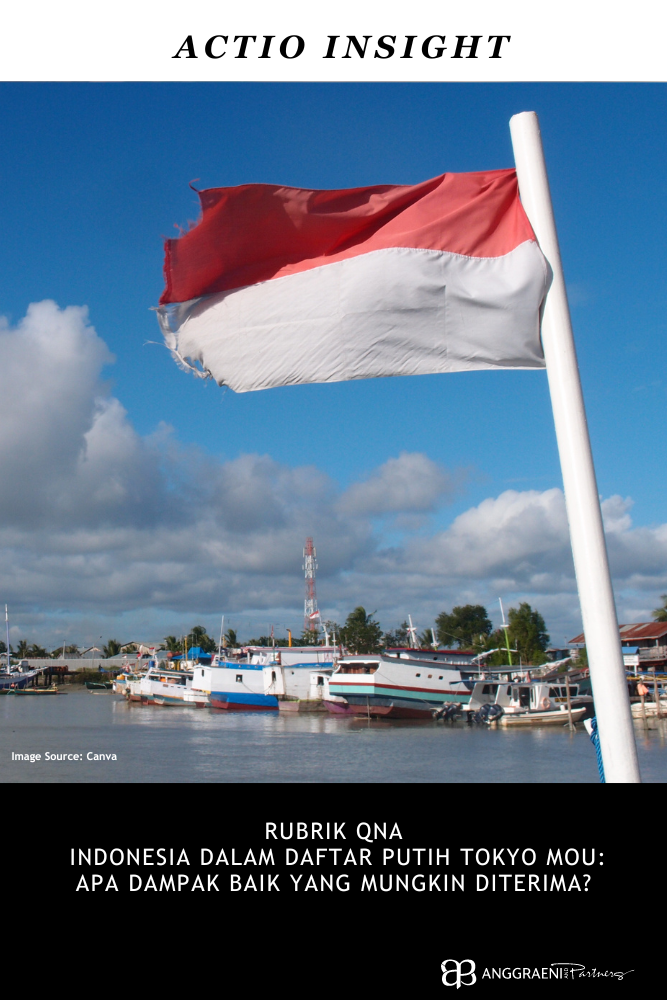- Home
- Capabilities
- ACTIO® Hub
- About Us
- Connect with Us
- AP Library
The implementation of the Large-Scale Social Restrictions (PSBB) policy by the Government as a measure to prevent the spread of COVID-19 has had a significant impact on business activities in Indonesia. One of which includes the holding of a General Meeting of Shareholders (RUPS) of a Publicly-Traded Company. RUPS is the Company Organ having the authorities not vested in the Board of Directors or the Board of Commissioners, within the limits set out under statutory provisions and/ or articles of association. These normally include approval of legal actions on behalf of the Company; amendments to the articles of association; increase and/or reduction in capital; decisions on the use of net profit; and changes in the composition of the Board of Directors and Commissioners.
RUPS can be held at the place of domicile of the Company, at the place where the Company conducts its main business activities as set out under the articles of association,2 or may also be conducted through the media of teleconference, video conference or other electronic media facilities that enables all participants of the RUPS to view and hear each other directly and to participate in the meeting.
Due to COVID-19, holding a RUPS physically has become more difficult. Although decision making can be made through a circular resolution, a circular decision requires that all shareholders approve the proposed resolution. Further, the holding of a RUPS through electronic media as stipulated in Law Number 40 of 2007 concerning Limited Liability Company (Law 40/2007) have encountered obstacles and cannot be properly implemented, especially for Listed Company that has a large number of shareholders and a wide distribution of share ownership.3 Some of these obstacles include.
meeting the requirements to view and hear each other, attendance quorums, decision quorums, and the form of minutes of the RUPS decision. One such example, PT Bumi Resources Tbk experienced this obstacle and had to reschedule their Annual RUPS because the attendance quorum requirement was not fulfilled due to COVID-19.
Considering that RUPS have ultimate authority to make decisions for the Company, it is necessary to make rules that could overcome the problems of holding the RUPS of a Publicly-Traded Company as mentioned above.
As a response to these obstacles related to holding a RUPS, the Financial Services Authority (Otoritas Jasa Keuangan (OJK)) issued Regulation of the Financial Services Authority of the Republic of Indonesia Number 16/POJK.04/2020 concerning the Implementation of Electronic General Meeting of Shareholders by PubliclyTraded Company (POJK 16/2020).
POJK 16/2020 is expected to be a solution for Publicly-Traded Company to hold RUPS electronically. The implementation of electronic RUPS can be conducted using Electronic RUPS Organization System (e-RUPS) provided by e-RUPS Providers or systems that are provided by Publicly-Traded Company. In the implementation of electronic RUPS, Publicly-Traded Company are required to:
a. include information as regards the plan for the implementation of electronic RUPS in the notification of electronic RUPS meeting agenda to OJK, RUPS announcement, and RUPS summonses; and
b. organize physical RUPS which should at least be attended by
1. the chair of the RUPS;
2. one member of the Board of Directors and/or 1 member of the Board of Commissioners; and
3. supporting capital-market professionals who assist in the implementation of RUPS.
However, the provision regarding physical attendance above may not be implemented by performing limitation of physical attendance of shareholders, either partly or wholly. This is allowed if under certain conditions which have been determined by the Government or with the approval from OJK.
Based on Article 8 paragraph 6 POJK 16/2020, RUPS should at least contain the following activities:
a. opening;
b. determination of attendance quorum;
c. discussion of questions or opinions that are submitted by shareholders or proxy of shareholders electronically in each meeting agenda;
d. the determination of resolution in each meeting agenda based on the decisionmaking quorum; and
e. closing.
The minutes of electronic RUPS shall be drawn up in the form of a notarial deed by a notary who is registered with OJK without requiring signatures from RUPS participants.
The presence of shareholders electronically through e-RUPS could substitute the presence of shareholders physically and are deemed as the fulfillment of attendance quorum. In the end, POJK 16/2020 intends to facilitate Publicly-Traded Company to hold an effective, lawful and efficient RUPS, which will strengthen financial system stability amidst COVID-19. DRP/HES


